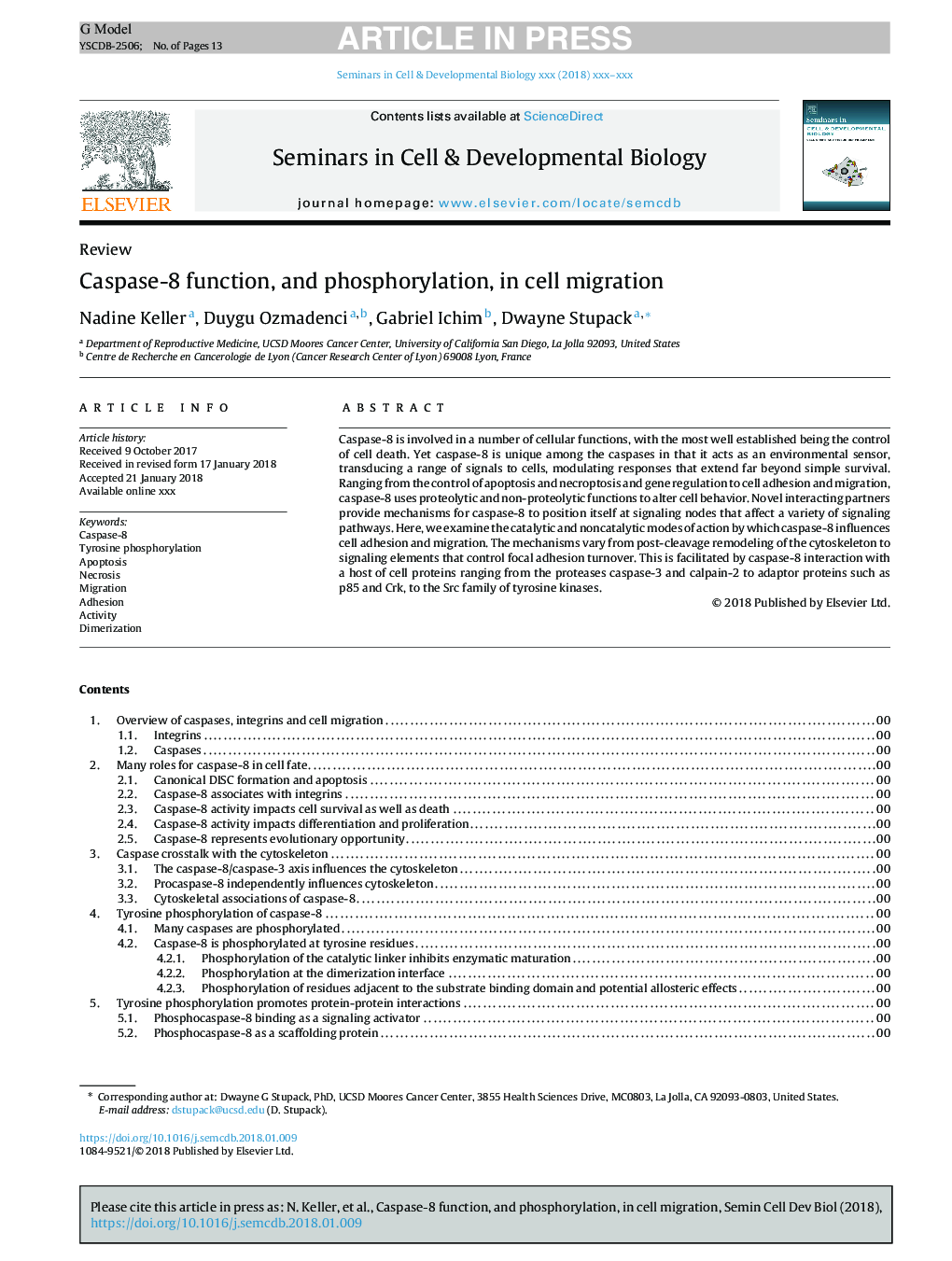| Article ID | Journal | Published Year | Pages | File Type |
|---|---|---|---|---|
| 10157929 | Seminars in Cell & Developmental Biology | 2018 | 13 Pages |
Abstract
Caspase-8 is involved in a number of cellular functions, with the most well established being the control of cell death. Yet caspase-8 is unique among the caspases in that it acts as an environmental sensor, transducing a range of signals to cells, modulating responses that extend far beyond simple survival. Ranging from the control of apoptosis and necroptosis and gene regulation to cell adhesion and migration, caspase-8 uses proteolytic and non-proteolytic functions to alter cell behavior. Novel interacting partners provide mechanisms for caspase-8 to position itself at signaling nodes that affect a variety of signaling pathways. Here, we examine the catalytic and noncatalytic modes of action by which caspase-8 influences cell adhesion and migration. The mechanisms vary from post-cleavage remodeling of the cytoskeleton to signaling elements that control focal adhesion turnover. This is facilitated by caspase-8 interaction with a host of cell proteins ranging from the proteases caspase-3 and calpain-2 to adaptor proteins such as p85 and Crk, to the Src family of tyrosine kinases.
Related Topics
Life Sciences
Biochemistry, Genetics and Molecular Biology
Cell Biology
Authors
Nadine Keller, Duygu Ozmadenci, Gabriel Ichim, Dwayne Stupack,
